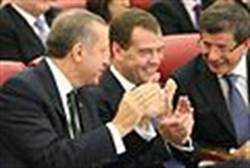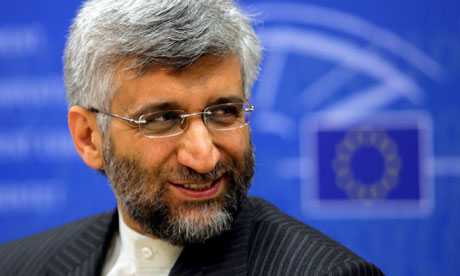India Said to Be Told Turkey May Stop Routing Iran Oil Payments
January 09, 2012, 8:08 PM EST
By Pratish Narayanan and Anto Antony
Jan. 10 (Bloomberg) — Turkiye Halk Bankasi AS has told Indian oil refiners it may no longer be able to act as an intermediary for their purchases of Iranian crude, four people with knowledge of the matter said.
Executives from the crude-processing companies met with Indian oil ministry officials yesterday to discuss alternatives, including routing remittances through Russia, the people said, declining to be identified because the information is confidential. Other options that were considered included stopping purchases from Iran altogether and importing from other countries, they said. Indian officials are scheduled to visit Tehran for trade talks Jan. 16-21, two of the people said.
Indian buyers such as Mangalore Refinery & Petrochemicals Ltd. and Hindustan Petroleum Corp. have faced difficulties finding lenders willing to handle payments to Iran because of sanctions against banks in the Gulf state. Saudi Arabia will increase crude exports to some Indian refiners this year as they seek to diversify supplies, four people with knowledge of the plans said Nov. 15. Prime Minister Manmohan Singh discussed alternative financial conduits with Russian officials during his visit to Moscow in December.
The European Union will discuss imposing harsher sanctions on Iran, including a ban on crude imports, in response to the country’s nuclear program when the bloc’s foreign ministers meet on Jan. 30. Iranian Vice President Mohammad Reza Rahimi said Dec. 27 that his nation would block fuel shipments through the Strait of Hormuz, a transit point for a fifth of the world’s oil, if penalties are imposed, according to a report by the Islamic Republic News Agency.
Russia’s Gazprombank
India, which got 11 percent of its crude imports from Iran last year, is exploring the option of making payments for Iranian crude through Russia’s Gazprombank OJSC, though no deal has been reached, three of the people said yesterday. OAO Gazprom, the world’s biggest natural gas producer, owns about 42 percent of Gazprombank, according to the lender’s website.
Andrei Serov, a Moscow-based spokesman at Gazprombank, wasn’t available for a comment at his office because of a holiday in Russia.
Bharat Petroleum Corp., or BPCL as India’s second-largest state refiner is known, planned to pay Iran for crude purchases by using the accounts of other government-run processors at Halk Bank, three people with knowledge of the situation said Dec. 21. That plan has now been rejected by the Turkish lender after BPCL made some payments, three of the people said yesterday.
Nobody answered a phone message left by Bloomberg News yesterday at Halk Bank’s office in Ankara.
Stop Supplies
BPCL, which started buying about 20,000 barrels a day of Iranian crude through a term contract in September, is considering whether to stop taking supplies, they said.
Indian refiners’ debts to Iran for purchases rose to as much as $5 billion in July, the Islamic Republic News Agency cited Central Bank Governor Mahmoud Bahmani as saying. The outstanding payments threatened to jeopardize about $9.5 billion in annual trade between the nations, with Iran telling customers they wouldn’t receive August shipments unless the bills were paid, according to the Fars news agency. The refiners started clearing the outstanding payments in August after Halk Bank agreed to make transfers.
U.S. President Barack Obama on Dec. 31 signed into law measures that deny access to the U.S. financial system to any foreign bank that conducts business with the central bank of Iran. The law includes language that allows the president to waive the sanctions if he determines they would threaten national security.
–With assistance from Steve Bryant in Ankara and Eduard Gismatullin in London, Editors: Raj Rajendran, Rachel Graham.
To contact the reporters on this story: Pratish Narayanan in Mumbai at pnarayanan9@bloomberg.net; Anto Antony in New Delhi at aantony1@bloomberg.net
To contact the editors responsible for this story: Alexander Kwiatkowski at akwiatkowsk2@bloomberg.net; Chitra Somayaji at csomayaji@bloomberg.net
via India Said to Be Told Turkey May Stop Routing Iran Oil Payments – Businessweek.





